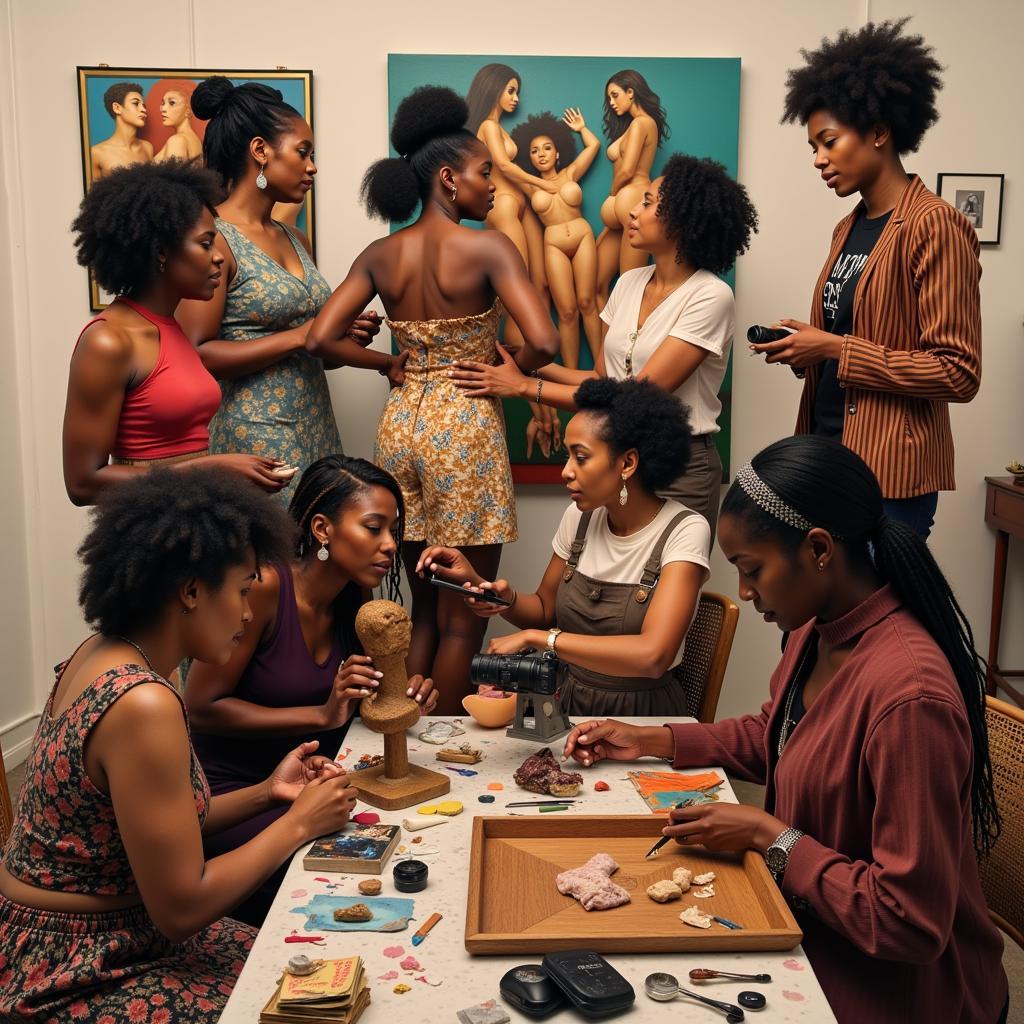Exploring African American Literature and Culture Society
African American Literature And Culture Society is a vibrant and complex field of study exploring the rich tapestry of creative expression, historical experiences, and social movements that have shaped the identity of African Americans. From the poignant narratives of slavery to the powerful poetry of the Harlem Renaissance, African American literature has served as a powerful voice for social change, cultural affirmation, and the pursuit of equality. This article will delve into the various facets of African American literature and culture, exploring its historical development, key themes, influential figures, and enduring impact.
After the Civil War, African American literature began to flourish. African American narrators emerged, giving voice to the experiences of a newly freed people. This era witnessed the rise of prominent figures like Frederick Douglass, whose autobiography became a cornerstone of abolitionist literature.
The Power of Storytelling in African American Literature
African American literature has a long and rich tradition of storytelling, dating back to the oral traditions of West Africa. These stories, passed down through generations, served as a means of preserving cultural heritage, imparting moral lessons, and expressing the joys and sorrows of the human experience. The power of these narratives lies in their ability to connect with audiences on a deeply emotional level, fostering empathy, understanding, and a sense of shared identity.
Key Themes and Literary Movements
African American literature encompasses a wide range of themes and literary movements, each reflecting the unique historical and social context in which it emerged. Some of the prominent themes explored in these works include the struggle for freedom and equality, the complexities of identity, the impact of racism and discrimination, the resilience of the human spirit, and the celebration of black culture and heritage.
The Harlem Renaissance, a period of remarkable artistic and intellectual flourishing in the 1920s, marked a turning point in African American literary history. Writers like Langston Hughes, Zora Neale Hurston, and Claude McKay gave voice to the Black experience with a renewed sense of pride and self-determination. Their works explored themes of identity, urban life, and the search for cultural roots.
African American Culture in the 1970s and Beyond
African American culture in the 1970s saw a continuation of the struggle for civil rights and equality, expressed through various forms of art, music, and literature. The Black Arts Movement, which emerged in the 1960s, continued to influence artistic expression, emphasizing Black pride and cultural nationalism.
The latter half of the 20th century and the 21st century have seen the emergence of new voices and perspectives in African American literature. Authors like Toni Morrison, Alice Walker, and James Baldwin have explored complex themes of race, gender, and sexuality, challenging traditional narratives and expanding the boundaries of literary expression.
What is the significance of African American literature?
African American literature provides invaluable insights into the historical experiences, cultural traditions, and social struggles of African Americans. It serves as a powerful tool for social change, promoting empathy, understanding, and dialogue across cultures.
African American pride is deeply intertwined with its rich literary and cultural heritage.
Conclusion
African American literature and culture society is a dynamic and ever-evolving field of study. From the earliest oral traditions to the contemporary literary landscape, African American writers have used their creative voices to document their experiences, challenge social injustices, and celebrate the richness and resilience of their culture. By exploring these diverse literary expressions, we gain a deeper understanding of the African American experience and its profound impact on American culture and society as a whole.
FAQ
- What are some key figures in African American literature?
Some key figures include Frederick Douglass, Langston Hughes, Zora Neale Hurston, Toni Morrison, and James Baldwin. - What is the Harlem Renaissance?
The Harlem Renaissance was a period of significant artistic and intellectual growth within the African American community during the 1920s and 1930s. - What are some common themes in African American literature?
Common themes include the struggle for freedom and equality, identity, racism, resilience, and cultural celebration. - How has African American literature influenced American culture?
It has shaped American culture by highlighting the African American experience, promoting social justice, and enriching artistic expression. - Where can I learn more about African American literature and culture?
Libraries, universities, and online resources offer a wealth of information on this topic.
Other Potential Questions
- What is the role of music in African American culture?
- How has African American art evolved over time?
Need support? Contact us 24/7:
Phone: +255768904061
Email: kaka.mag@gmail.com
Address: Mbarali DC Mawindi, Kangaga, Tanzania.


